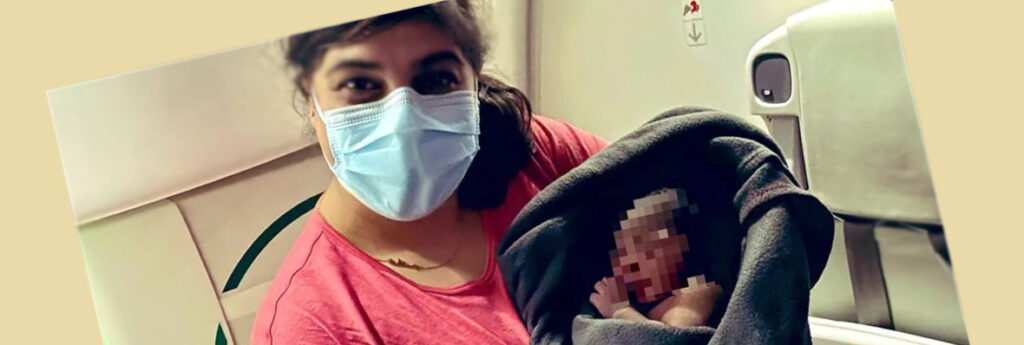A Canadian doctor’s hopes catching some shut-eye on her flight were dashed when she was asked to assist with the delivery of a baby on board. Dr. Aisha Khatib was on the final leg of her multi-stop voyage from Toronto to Entebbe, Uganda, last month when she heard an announcement asking if there were any medical personnel on the plane.
The University of Toronto professor, who specializes in travel medicine, was ushered to the back of the plane, where she found a woman in labour with a baby well on its way.
Khatib remembers someone giving her gloves before she focused on the situation at hand.
“As that was happening, somebody on my left said, ‘I’m a nurse, can I help you?’ And I said, ‘Yes, I need the medical kit. You know, there should be a delivery kit in [here]. If not, I need clamps. I need scissors. If we don’t have clamps, I need shoelaces,'” she said.
“I’m [also] thinking, ‘I need hot water.’ And then like, ‘Wait, no. I don’t need hot water, but they always ask for that in the movies.” She said.
It was an unexpected surprise for both Khatib, who had never delivered a baby in a plane before, and the mother, who was travelling alone. A migrant worker, she was flying home from working in Saudi Arabia.
“She was calm. She was focused,” Khatib recalled. “I mean, I think she was in shock, you know, to tell you the truth.”
According to the doctor, the mother called a flight attendant over when she felt severe abdominal pain. The attendant asked if she was pregnant — and only then did the passenger realize she was in labour.
She says she handed off the crying newborn to the pediatrician to check its vitals as she cared for the mother through the final stages of labour.
Khatib says she congratulated the mother on giving birth to a baby girl as the plane erupted with clapping and cheers.
She says she spent the next five hours looking after mother and baby as the flight continued on its path from Doha, Qatar, to Entebbe.
Khatib says the mother told her she would name the baby “Miracle Aisha” in her honour, and in return, the doctor gave the girl a necklace with her name inscribed in Arabic to remember her by.

